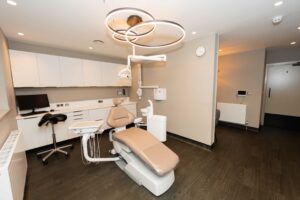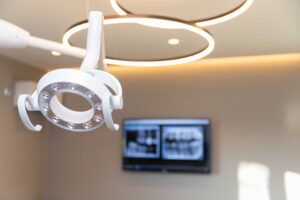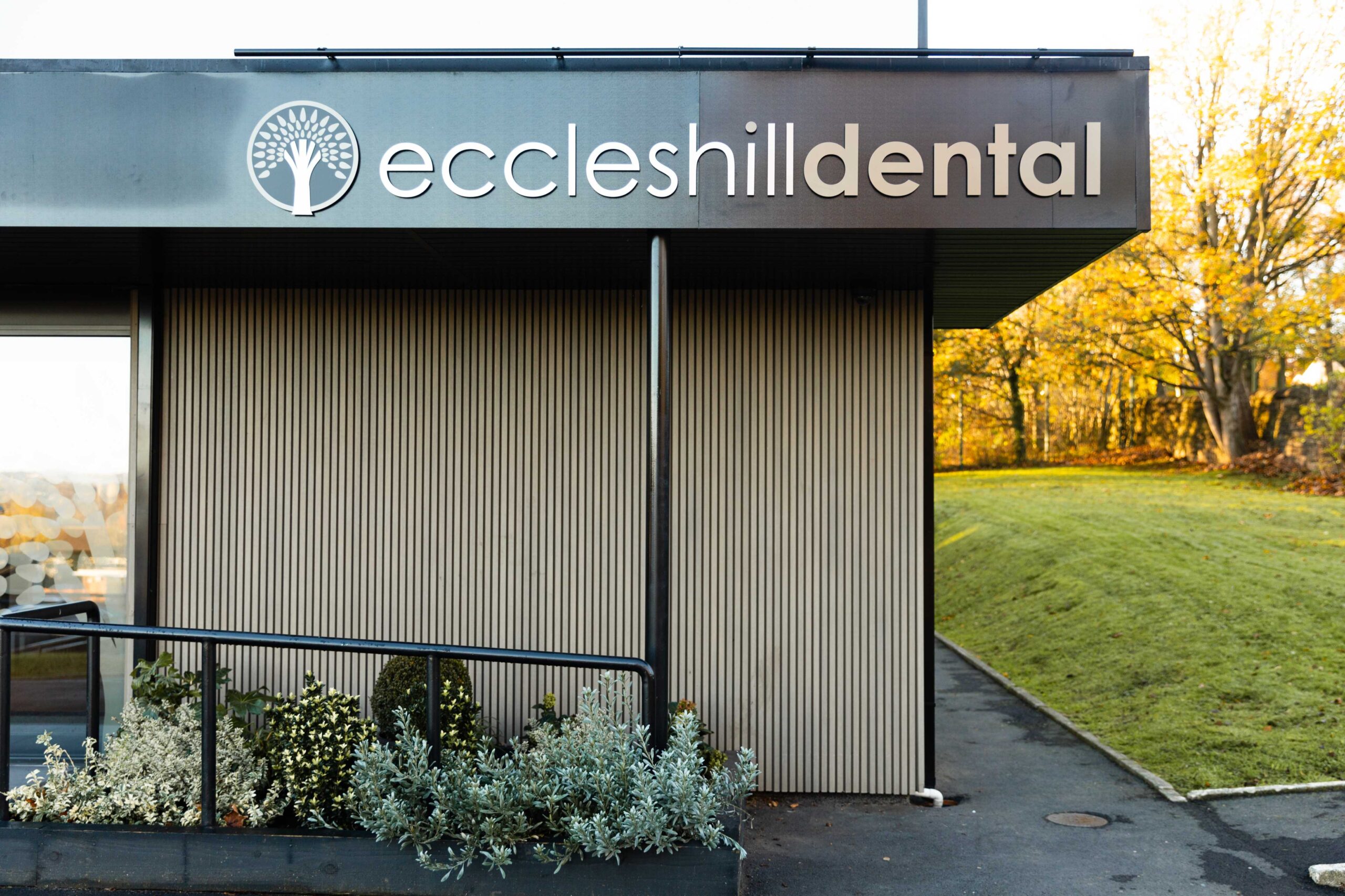Maintaining a healthy, confident smile involves more than just brushing twice a day and flossing when you remember. One big piece of dental health that people often underestimate is the frequency of checkups. As dentists, especially those of us practising in Bradford, we’re often asked: “How often should I come in for a checkup?” The short answer: it depends. But there are some widely accepted guidelines, and also specific circumstances that can change what’s right for you.
In this blog, I’ll walk you through what dentists in Bradford professionals generally recommend, what factors influence how often you should see a Bradford dentist, why private dentist Bradford options might matter, and how you can work with your own dental practice to figure out the best schedule for your teeth.
What Is a Dental Checkup, and Why Is It Important?
Before we get into the frequency, let’s clarify what a dental checkup involves, especially at a reputable dental practice in Bradford.
- Oral Examination: This is where a dentist (or dental hygienist) checks your teeth, gums, jaw, and often your tongue and overall mouth for signs of decay, disease, gum problems, or other anomalies.
- Professional Cleaning: Even with excellent home care, plaque and tartar can build up in hard‐to‐reach places. Dental hygienists help remove those safely.
- X-Rays (where justified): To catch problems under the surface—between teeth, below gums, or in the jaw—that aren’t visible in a visual inspection.
- Advice & Preventive Care: Tips on how to improve brushing or flossing, dietary advice, maybe treatments like fluoride or sealants, depending on your risk.
All this helps catch issues early when they’re easier, less painful, and less expensive to treat. Regular checkups also help you maintain good oral health, which is linked to general health—things like heart disease, diabetes, and more can be impacted by oral health.
“Standard” Recommendation: Every 6 Months?

In many cases, dentists in Bradford and elsewhere commonly recommend a checkup every six months—that’s twice a year. This schedule is a kind of “middle ground” that balances prevention and practicality:
- It helps ensure that decay or gum disease doesn’t go unnoticed for too long.
- It allows regular cleaning so that plaque/tartar build‐up is kept under control.
- It gives the opportunity to update preventive treatments or advice as needed.
For many people with reasonably good dental health and no complicating factors, six‐monthly checkups are sufficient. Private dentist Bradford clinics often follow this guideline, because it tends to work well for most.
Also Read: Why Choose a Trusted Dental Practice for Your Family’s Oral Health Needs?
When It’s More Often: Who Needs Frequent Checks?
However, “one size fits all” doesn’t truly apply when it comes to dental checkups. Some factors might mean you should see a Bradford dentist more frequently than every six months. Here are some common reasons:
- Gum Disease History or Active Periodontal Issues
If you’ve had gum (periodontal) disease—bleeding gums, pockets, bone loss—you’ll probably need checkups every 3–4 months to monitor, treat, and prevent recurrence. - High Caries Risk (Cavities / Decay)
If you’re prone to cavities—due to diet (lots of sugar or acid), medication side effects, dry mouth, or poor brushing/flossing habits—you may need more frequent visits. - Smoking or Tobacco Use
Tobacco greatly increases risk of gum disease, oral cancer, and healing complications. Dentists will usually recommend more frequent surveillance in such cases. - Medical Conditions & Medications
Diabetes, for example, can worsen gum disease. Certain drugs reduce saliva flow, raising decay risk. If you have systemic health issues, your dentist in Bradford will often advise more frequent visits. - Orthodontic Work or Dental Implants
If you have braces, aligners, or implants, you have extra surfaces or hardware that can trap food/plaque. Regular checkups help avoid complications. - Good but Wanting to Maintain Premium Oral Health
Some people simply want to keep their smiles in top condition—no plaque, bright colour, excellent gum health. If that’s you, even if you don’t have risk factors, you might prefer going every 4 months or so.
When Less Often Might Be Okay

On the flip side, there are people who might be fine with checkups less frequently than every six months. This doesn’t mean “never”—just a more relaxed schedule under certain conditions:
- You have excellent oral hygiene, minimal risk factors, no ongoing dental issues.
- Your dentist has assessed you and believes you can safely stretch the interval to every 9 to 12 months.
- You respond well to treatment and preventive care.
Even then, many Bradford dental practices, especially private dentist Bradford clinics, will still advise a minimum of once a year, just to stay on top of anything that might sneak in under the surface.
Differences Between NHS, Private, and “Dentist Near Me” Options in Bradford
If you’re looking for a “dentist near me” in Bradford, you’ll find both NHS and private dental practices. The frequency recommendations are generally the same in terms of what’s best for teeth, but there are differences in how you might get there:
- NHS Dentists: Offers standard checkups, cleanings, and treatment. In many cases, following six‑monthly checkup guidance is standard under NHS care. However, depending on the workload, wait times, and the dental assessment, some patients may be advised differently.
- Private Dentist Bradford Clinics: They often offer more flexibility—enhanced checkups, cosmetic treatments, advanced cleaning, possibly checkups more often if requested. There’s more room to customise your visit schedule. You might get more time with the dentist/hygienist, or more preventive interventions.
- Dentist Near Me (Local)**: Convenience matters. A nearby dentist might make it easier to attend appointments more often. If it’s easy to pop in, many people do better with more frequent, smaller check‑ups.
Also Read: NHS Vs. Private Dentistry: Which One Is Right For Me?
What Bradford Dentists Recommend: A Practical Schedule
Here’s a sample guideline (tailored to Bradford dental patients) to help you figure out what might work for you:
| Your Situation | Recommended Frequency |
| Healthy, good oral hygiene, no risk factors | Every 6 months |
| Some risk factors (diet, occasional neglect, mild gum sensitivity) | Every 6 months |
| History of decay, oily diet, acid reflux, dry mouth, smokers | Every 4‑6 months |
| Active periodontal disease or serious gum problems | Every 3‑4 months |
| Orthodontic work / implants / prosthodontic appliances | Every 4‑6 months (or as advised by your specialist) |
Signs It’s Time to See Your Bradford Dentist, Even If It’s “Too Soon”
Even if your last checkup was recent, these warning markers suggest you shouldn’t wait for your routine appointment:

- Bleeding gums when brushing or flossing
- Persistent bad breath
- Sensitive teeth (cold, hot, sweet)
- Pain or throbbing in any tooth
- Loose teeth, or gums pulling away
- Sores or lesions that don’t heal after a week or so
- Any visible changes in your mouth you can’t explain
If you notice any of these, you should reach out to your dentist in Bradford sooner rather than later.
How to Decide What’s Best for You
Choosing the right dental checkup schedule is a partnership between you and your dental team. Here are some ideas for making that decision:
- Be Honest About Your Habits and Health
Let your dentist know about your diet, habits (smoking, alcohol), medical issues, medicines, and how often you actually brush/floss. - Review Past History
If you have had regular cavities, gum issues, implants, or past dental problems, that’s very relevant. - Talk About Your Comfort & Budget
More frequent checkups cost more (especially in private practices), and take more time. But they can prevent more severe and expensive problems later on. - Ask About Preventive Options
Things like sealants, fluoride varnish, or laser treatments might help reduce how often you need invasive treatments. - Stick with One Practice If You Can
Visiting the same dentist in Bradford or dental practice helps because they know your history—a huge advantage. If you switch often, you lose continuity.
Myths & Misconceptions
Since we’re talking about how often, it’s worth clearing up some myths people often believe:
- “If nothing hurts, you don’t need to go.”
Wrong. Many dental problems are painless in early stages. Waiting until you feel pain often means the problem is already advanced. - “My teeth are strong; I don’t need frequent cleanings.”
Even strong teeth need maintenance. Plaque & tartar can be sneaky. - “Dental checkups are just about cavities.”
No—they help with gum disease, oral cancer screening, jaw/joint health, overall mouth health. - “It’s a waste of money to go if nothing’s wrong.”
Prevention is almost always cheaper than cure. Early surface treatments are much more affordable and less invasive than repairing damage later.
Also Read: Why Gum Health Is Important and How to Maintain It
What to Expect at Your Bradford Dental Practice
If you are considering where to go, here’s what a good dental practice in Bradford should offer during checkups:
- Welcoming, professional staff who listen
- A thorough examination of each tooth, gums, and overall mouth health
- Clean, sterilised instruments & safe practices
- Clear explanation of findings—what’s good, what needs attention
- Digital/modern X-rays when needed (with safety considerations)
- Guidance on home care, diet, possibly tailored treatment plans
If a practice isn’t giving you that, or rushing through checkups, you may want to consider switching to a private dentist Bradford centre that prides itself on quality and care.
Summary: What Bradford Dentists Really Recommend
- For most people, every six months is a good rule of thumb.
- If you have risk factors or previous dental issues, more frequent checkups (every 3‑4 or 4‑6 months) are wiser.
- If you have excellent oral health and few risk factors, 9‑12 monthly checkups might be enough—but only with professional assessment.
- Never wait for pain. Early signs often show before discomfort.
Also Read: How Do Teeth Stain and How Do You Get Rid of Badly Stained Teeth?
Final Thoughts
If there’s one thing dentists in Bradford (and beyond) agree on, it’s that regular dental checkups are your strongest ally in maintaining dental health. They catch problems early, prevent expensive treatments later, and help ensure your smile stays healthy and bright for years to come.
No two mouths are the same—so there’s no universal schedule that fits everyone perfectly. The best frequency for you is one arrived at through open conversation with your dentist in Bradford, honest appraisal of your habits, and regular feedback.
Why Choose Eccleshill Dental – Your Local Private Dentist in Bradford
At Eccleshill Dental, we believe in building long‐term relationships with patients in Bradford. We offer comprehensive examinations, professional cleaning, personalised preventive care, and flexible appointment schedules. Whether you need NHS standard care or private dentist Bradford services, we adapt to your needs.
Don’t wait for pain or problems. If it’s been more than six months since your last visit, or if any signs of discomfort have appeared, now’s a good time.
Book your next checkup with Eccleshill Dental today — take control of your dental health, keep your smile looking and feeling its best, and enjoy peace of mind. Call us or get in touch via our website to find out more or schedule your appointment.
Here’s to a healthier smile! 🦷




